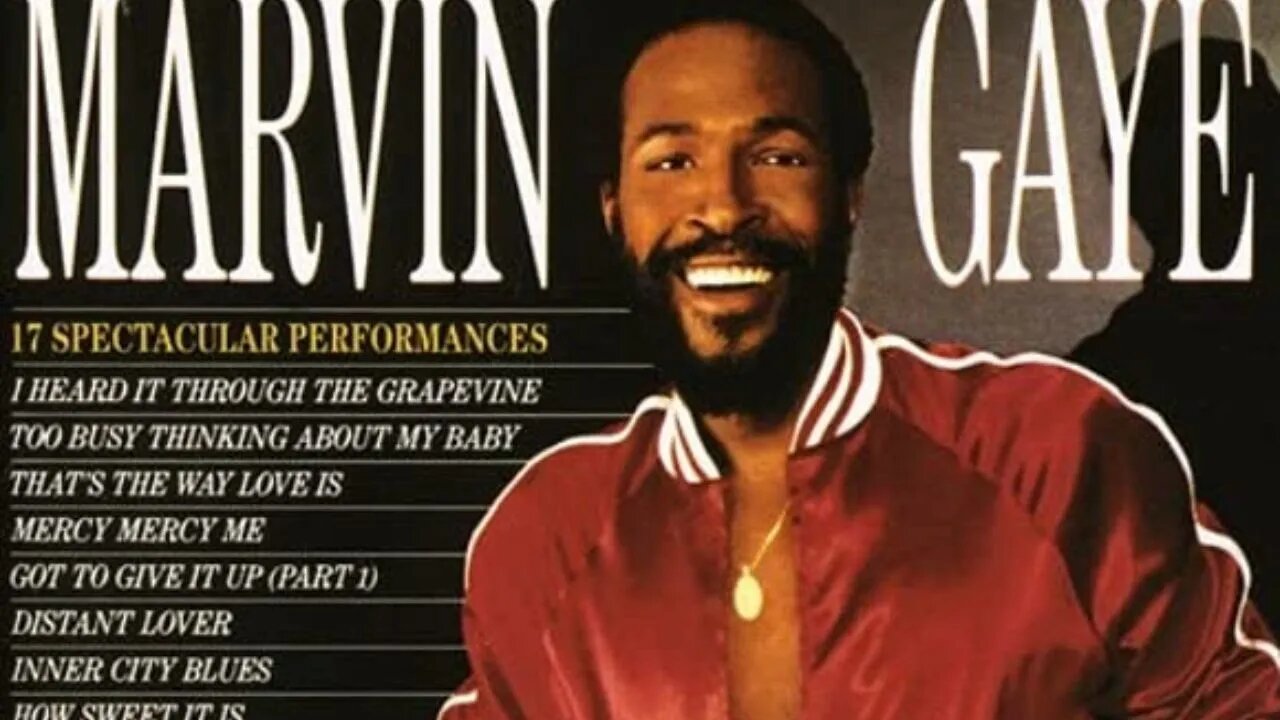Premium Only Content

Who Is Marvin Gaye and What Is His Iconic Song? #shorts #motownmusic #rocknroll
Marvin Gaye's 1968 hit single "Heard It Through the Grapevine" is widely recognized as one of the most iconic songs in Motown’s history. It boasts a catchy melody, soulful delivery, and an enigmatic arrangement that perfectly captured the essence of the late 1960s. Few songs have had the lasting impact of this classic track, influencing countless musicians and shaping the sound of modern music. In this essay, we will explore the significance of "Heard It Through the Grapevine" in the music industry during the late 1960s, the impact of its chart position, and its relevance to the broader context of the civil rights movement and African American representation in music.
"Heard It Through the Grapevine" was originally recorded by Gladys Knight and the Pips in 1967, but it was Marvin Gaye's version that became the definitive version of the song. His version was released in 1968 and quickly became one of Motown’s biggest hits. The song’s chart position on March 26, 1969, was a significant moment in the history of Motown, as it marked the first time that a Motown single had occupied numbers one and two on the Billboard chart simultaneously. This accomplishment was especially notable given the intense competition Gaye faced from other major artists of the time, such as The Beatles, Aretha Franklin, and The Rolling Stones, all of whom were dominating the charts with their own hits.
At the time of its release, the song's themes and lyrical content resonated deeply with a generation of listeners who were grappling with the social and cultural changes of the 1960s. The song’s lyrics, which tell the story of a man who hears rumors of his lover's infidelity "through the grapevine," touched on a topic that was highly relatable. The song’s catchy refrain, "I heard it through the grapevine," quickly became a well-known catchphrase across the country.
The significance of the song goes beyond its catchy melody and memorable lyrics. The song's themes of infidelity and betrayal also reflected the tumultuous social and political climate of the era, where trust and communication had become major casualties of the ongoing civil rights movement. Gaye’s ability to use personal themes as a way of tapping into broader cultural anxieties resonated deeply with many of his listeners, especially those in the African American community, who saw his work as a powerful and relatable reflection of their own experiences.
In many ways, "Heard It Through the Grapevine" served as a crucial representation of African American culture in the music industry. Gaye's unique style of soul music, which drew from his own experiences as an African American man in the United States, was distinguishable from that of his white competitors. In this way, the song helped to break down barriers in the music industry, which had long been dominated by white artists and executives.
Indeed, "Heard It Through the Grapevine" is often seen as a key moment in the history of African American representation in music, given its ability to break down walls and challenge preconceptions. It is perhaps for this reason why the song resonates so powerfully with audiences today, long after its initial release.
In conclusion, Marvin Gaye's "Heard It Through the Grapevine" remains a classic hit with lasting cultural and historical significance. The song's impact on the music industry in the late 1960s, its lyrics, and themes, as well as its reflection of the broader context of the civil rights era, have cemented the song's status as one of the most iconic and influential songs of all time. The enduring popularity of "Heard It Through the Grapevine" serves as a powerful testament to Marvin Gaye's unique vision, timeless talent, and the pinnacle of Motown's creative output.
-
 15:18
15:18
DeVory Darkins
21 hours ago $2.83 earnedTrump Drops NIGHTMARE Warning on Joe Biden
4.96K23 -
 36:13
36:13
The Why Files
1 month agoAlien Implants Vol. 1: Devil’s Den UFO Encounter: What Was Found Inside Terry Lovelace?
39.9K36 -
 4:23:49
4:23:49
FreshandFit
13 hours agoIsrael v Palestine Debate! Respect A Man If He Says No Or Yes To A Girl's Trip?
165K181 -
 2:05:33
2:05:33
TheSaltyCracker
15 hours agoTech Bros try to Hijack MAGA ReeEEeE Stream 12-27-24
298K516 -
 2:01:25
2:01:25
Roseanne Barr
19 hours ago $41.26 earnedJeff Dye | The Roseanne Barr Podcast #80
145K67 -
 7:32
7:32
CoachTY
17 hours ago $12.19 earnedWHALES ARE BUYING AND RETAIL IS SELLING. THIS IS WHY PEOPLE STAY BROKE!!!
132K8 -
 1:01:00
1:01:00
Talk Nerdy 2 Us
14 hours ago💻 From ransomware to global regulations, the digital battlefield is heating up!
51K2 -
 3:00:24
3:00:24
I_Came_With_Fire_Podcast
16 hours agoHalf the Gov. goes MISSING, Trump day 1 Plans, IC finally tells the Truth, Jesus was NOT Palestinian
92.4K38 -
 4:11:49
4:11:49
Nerdrotic
19 hours ago $42.87 earnedThe Best and Worst of 2024! Sony Blames Fans | Batman DELAYED | Nosferatu! |Friday Night Tights 334
209K41 -
 7:55:51
7:55:51
Dr Disrespect
23 hours ago🔴LIVE - DR DISRESPECT - WARZONE - SHOTTY BOYS ATTACK
250K35